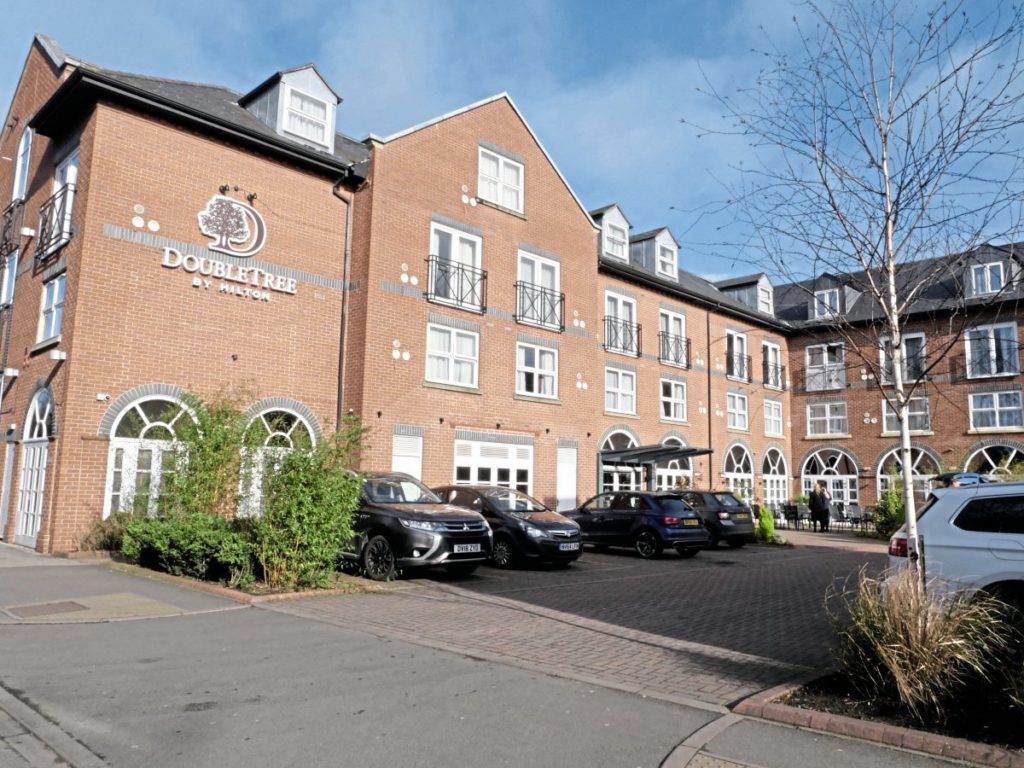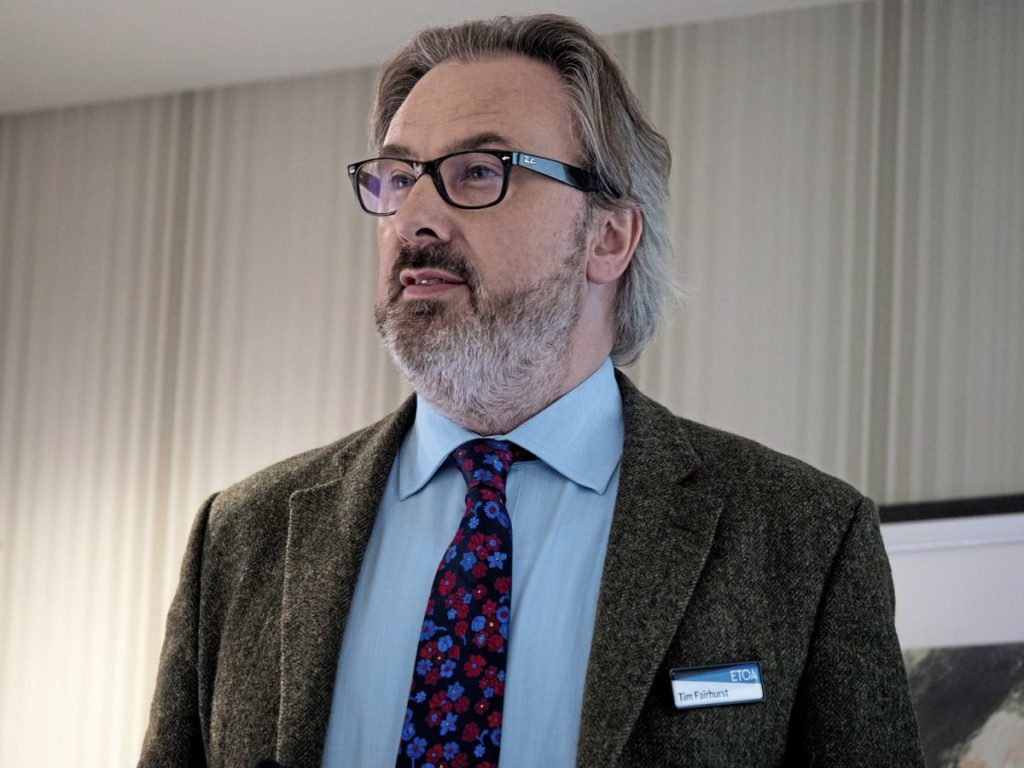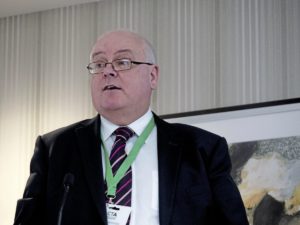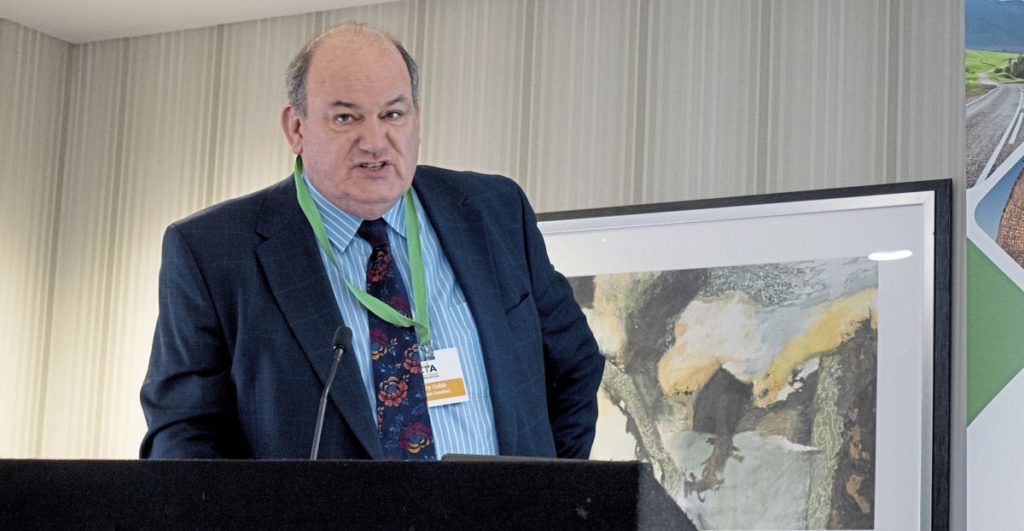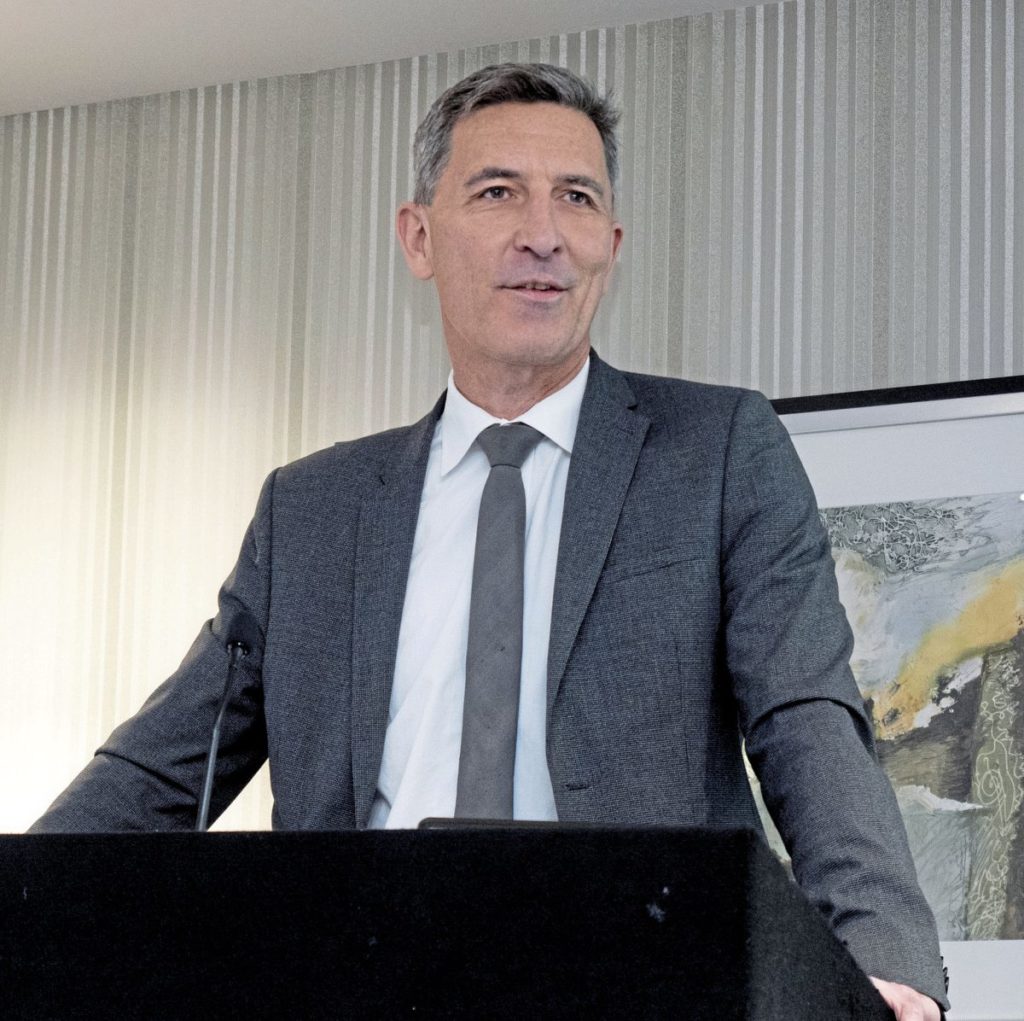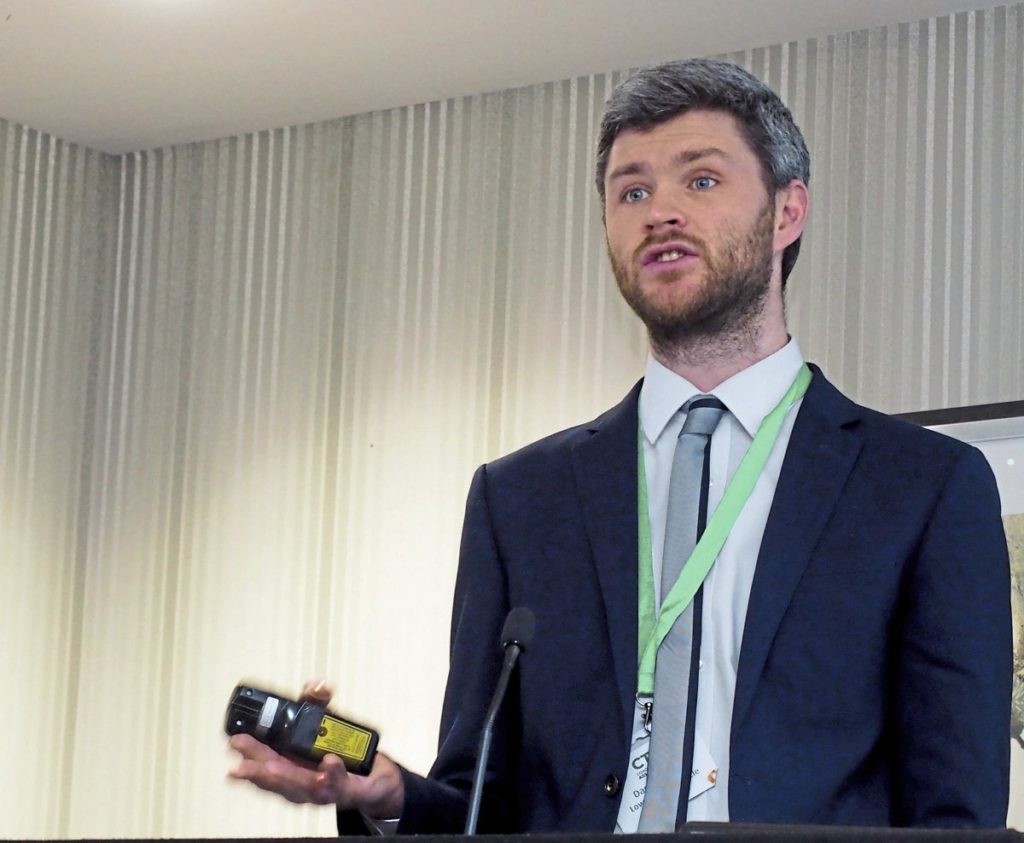Where next for coach tourism?
The Coach Tourism Association’s annual conference in York provided operators with some lively discussion including bitter criticism of London’s coach parking but leavened the occasion with fam trips and a dinner.
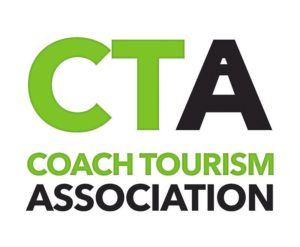 At its biggest conference yet, the Coach Tourism Association outlined what’s in store for European touring after Brexit.
At its biggest conference yet, the Coach Tourism Association outlined what’s in store for European touring after Brexit.
The annual event, this year at the Doubletree by Hilton Hotel in York, drew more than 160 delegates including coach operators and suppliers, with an agenda of familiarisation trips around York, dinners and networking events. The conference sessions, split over two days, examined the landscape for overseas coach travel, what’s coming to coach emissions, and got down to brass tacks on cities’ attitude to coaches.
The latter subject drew heated debate from both the panel – including award-winning operator Dave Parry of Parrys International – with harsh criticism of London’s coach parking policy and the revelation that things are now so bad, some operators are pulling out of the capital city altogether.
What’s next for Europe?
Tim Fairhurst, of the European Tour Operators’ Association, told delegates that although the post-Brexit future is unpredictable, the signs are that operators will face only minor challenges if operating in most of the EU.
The 1,300-member organisation with representation in most European economies has, he said, been tracking developments since the referendum and, although change is inevitable, believes that established tourism regulations should limit disruption.
Of the Interbus agreement, Tim said that only Switzerland and Norway are not signatories to Interbus, so the majority of closed-door tours to mainland Europe will be unaffected. A bigger challenge, he said, might be monitoring the mobile works regulation which currently restricts drivers and couriers to 90 days in every 180 days in the Schengen area. He warned that staff holidays into the EU count against the total.
He said that cabotage regulations remain, preventing UK operators from operating tours within the EU from the UK, and we are unlikely to diverge from existing practises for the Package Travel Regulation.
Tim warned, however, that local authority control over transport into cities is causing problems and is a liquid situation: “Local authorities have the most power over tourism. In terms of coach access, many want to be seen to be doing something and create regulations which don’t make much sense in the long term.”
Tim cited Amsterdam as an example of a city “hostile to the coach” and said it has a “very clear anti-coach sentiment.
“Parts of the local authority simply don’t want any coaches inside the A10…but there are also some sensible people within these bureaucracies.”
“The suggestion that coaches cause congestion is completely without foundation, and banning coaches has a negative influence on emissions.”
But Tim warned against direct action: “In Rome, the coach industry gave the right-wing Mayor a PR victory by blockading the city. She stood in front of the coach blockade and it reinforced her point. Success will come from better dialogue and better data, and that data has to come from you.”
The Confederation of Passenger Transport’s Coaching Manager, Andy Warrender, told delegates that the Brexit outcome had been the subject of some “scare stories” and that although operators need to follow developments closely, there is no need to panic.
“Just to underline the size of the industry, in 2014, 40,000 coaches crossed the Channel and 35,000 of those were touring coaches. Two million coach holidays were taken last year. In my view, there will be virtually no change in holidays to Europe. People will still want to go to Europe, and you will still want to take them there.”
Andy pointed out that for at least the next year, the UK will still be in a transition period, and waybill systems and licensing will remain the same until 31 January 2021: “The truth is, we don’t know a lot for certain, but we are aiming for business as usual.”
Andy pointed out that the UK’s negotiations with the EU will not begin in earnest until May and will be on “an extremely tight timetable.” The outcome, the CPT thinks, could be slightly more restrictive than touring currently but closed-door tours will be least affected: “If anything, any change could favour EU-to-UK operation.”
The fact that Switzerland is not a member of the Interbus agreement could make it inaccessible: “We would advise operators that, if you have tours into Switzerland planned, make some contingency plan in case they cannot run.”
He suggested operators act now to ensure all staff and customers have passports with at least six months’ validity remaining.
‘European holidays down’ – Cobb
Barry Cobb, Tour Manager for Johnsons of Henley-in-Arden, said that the proportion of the company’s continental tour bookings have dropped in recent years.
At one point, he said they constituted between 10% and 12% of all bookings but last year were closer to 7%. However, the proportion of holidays by cruise ship or air had risen to 33%.
Johnsons operates 270 tours a year, carrying around 9,500 people: “Cruise and air are becoming attractive and more affordable,” he told delegates. “As a result, the number of coaches used in the programme is reducing.”
One of the issues hitting bookings, he believes, is that the age demographic of his customers have now visited many of the locations offered: “They are also aware that on a nine-day coach holiday, four will be spent travelling. We find that our tours have only a two- to three-year shelf life.”
However, Barry added that being adventurous with tour planning can pay a dividend: “We are seeing growth in our special interest tours.
“Having our base in the West Midlands is also a drawback for continental tours because to reach the ferryports we have to leave at 5am. That’s seen as a negative.” Paul Acklam, of Acklams Coaches of Hull confirmed this, by saying his tours were still popular since his proximity to northern ferry ports allowed his tours to depart at 4pm for the overnight crossings.
Barry said that Johnsons does not foresee a day when it does not carry continental tours in its brochures. But he also said that European hotels are less attuned to the UK coach touring sector and, for example, were reluctant to offer a menu choice for dinner, especially in France.
As European cities clamp down on emissions, he has also seen greater difficulties in accessing city centre hotels: “You need a degree to understand the Amsterdam guidance for coach access,” he said. “This despite the fact that the only greener transport systems are bicycle and walking.”
To achieve growth, Barry believes there is great scope for operators with similar product to join forces and share tour departures, ensuring better loadings: “Making this happen depends on working in partnership together with a great deal of trust.”
During the discussion session, CPT’s Coach Manager Andy Warrender appealed to operators to create more passenger data: “It would be very interesting to do a spot survey on passenger spending during tours.”
“Our traditional view of the coach tour visitor is now hopelessly out of date, but the last statistic I saw suggested a £100-a-day spend for the UK.”
Dave Parry, MD of Parrys International, said his experience of booking hotel meals in Europe is at variance with Johnsons. He says he has no problem getting menu choice, but agreed it comes at a cost.
On Switzerland, Tim Fairhurst of ETOA said that it is an expensive destination and should be judged in terms of its priority for tour brochures: “It is quite a defensive economy with regards to tourism.” Andy Warrender agreed, and said that in the unlikely event of Switzerland joining the Interbus agreement, it would “open doors that the Swiss do not want opening.”
To combat the issues operators face entering Amsterdam, Tim Fairhurst said: “What’s it going to take to be a bit more entrepreneurial in regions outside of Amsterdam? I know it can be really hard getting people to visit regions they haven’t heard of, but can the regions help you with that? We are going to have to be a bit smarter at selling what’s not famous.”
‘CTA strategically important’ – Vidler
CPT Chief Executive Graham Vidler hinted at a closer relationship between the Coach Tourism Association and the CPT going forward.
“The CTA relationship is strategically important for us. Coach tourism matters,” he said.
Graham said the upcoming National Coach Strategy being prepared by the CPT for publication soon will help focus on the data: “Please share all the data you can with us. It will enable us to tell your story more effectively.
“We all know many cities have poor facilities for coaches. This needs to change.” Graham highlighted Bury Market as an example of best practise, with coach parking and facilities for drivers: “We need more initiatives like this. We all have an interest in clean air in our cities but Clean Air Zones often penalise coaches.
“There are retrofit funding schemes but there’s no funding if you are based outside of the city offering it.”
“We are calling for a National Clean Air Fund for coaches, so operators who need support can get it.”
Graham said the CPT would fight for coaches to have access to bus lanes and said the CPT is developing a relationship with transport minister Baroness Vere: “She quips that she’s the Baroness of Buses and the Princess of Potholes, so I’d like to see her become the Countess of Coaches,” he joked.
‘National retrofit needed’ – Hayes
Low Carbon Vehicle Partnership Project Manager, Dan Hayes, outlined the progress made with the reduction of NOx and particulates but echoed earlier comments by Graham Vidler, that there needs to be a national funding scheme for Euro VI retrofit.
Dan suggested that coach tourism needs to brace itself for more Clean Air Zone schemes in British and European cities, driving an even greater need for Euro VI, which achieves a 95% improvement in NOx over Euro V. He also warned of schemes such as London’s and now Oxford’s for a central zero emission zone, which will require electric or hybrid vehicles.
“In terms of greenhouse gases [such as CO2] we have reduced emissions by 44% since 1990, but that’s mainly due to changes in offices, reduced coal generation and growing wind and solar energy. Only the transport sector’s CO2 emissions have increased.
“There is now a car for every two people in the UK. Diesel cars are getting bigger and there are a lot more vans. Mileage is increasing.”
Dan told delegates that the focus on carbon emissions from now on will grow but said that, in the short term, coaches will be able to deal with pressure to reduce them by using biofuels, such as CNG/LNG and diesels such as HVO which are made from food waste.
“But the greatest need is for modal shift to get there. A severe change in travel patterns. Governments need to be supporting high-occupancy vehicles, and for us, low-carbon renewable fuel is the best ‘win’ for coaches.”
During the panel session, Alpine Travel MD Chris Owens said he’d tried an electric car to get to the National Coaching Conference and, due to traffic, had very nearly failed to get home: “The charging infrastructure is awful,” he said. He asked if hydrogen fuel cells will be the way forward.
In reply, Dan Hayes said the energy density of hydrogen storage would improve as nanotechnology is developed so that fuel cells offer greater range; at present, only buses are using hydrogen: “The hydrogen economy is likely to evolve in terms of technology solutions.”
“There are challenges with distributing hydrogen; electric is easier because we are all connected to it.”
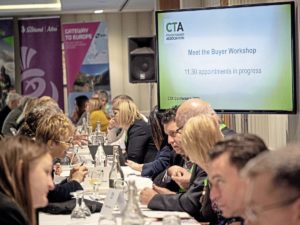
CTA’s ‘speed dating’ workshop helped put names to faces, produce new ideas and new business, and was very busy
Robert Shaw, of Harry Shaw of Coventry, asked the panel how – with the loss of petrol and diesel revenues – they thought electricity would be taxed. Graham Vidler replied: “There’s a conversation about how we charge for roads to be had, which includes driving modal shift. I think road pricing may be the solution.”
In answer to a question from Tina Hailstone, of Hailstone Travel of Essex – who said that, even with Euro VI vehicles, she didn’t feel welcomed into cities and couldn’t use bus lanes – Graham Vidler said: “In most locations, I believe coaches should be allowed to use bus lanes but we don’t want to inhibit local authorities from creating bus lanes.”
Asked about the CPT’s plan to create new datasets for coach tourism, Coaching Manager Andy Warrender said: “We are trying to implement the data collection as fast as possible. We have already identified a dozen operators to run a pilot stage. After that, it will be a continuous data gathering strategy.”
‘London tourism an engine for growth’ – Mulliner
London & Partners’ Director of Commercial Ventures and Domestic Tourism, Fiona Mulliner, found herself in the firing line for damning criticism of London’s coach policies.
London & Partners is a public-private partnership aimed at marketing tourism to London, with its focus currently on growing its audience and encouraging visitors to stay longer. It’s ‘Let’s do London’ strapline is being used in targeted print, digital and on-demand video to broaden tourists’ knowledge of the city. “It’s a very simple message and the results so far are very good,” said Fiona. “We want to spread that message out to coach tour operators, and let them know that these marketing assets are available to them to push their products.
“It’s a very simple message and the results so far are very good,” said Fiona. “We want to spread that message out to coach tour operators, and let them know that these marketing assets are available to them to push their products.
Alongside her, City of York’s Sustainable Transport Manager, Julian Ridge, got a rather easier ride, and the city’s coach parking and driver facilities were largely praised for their quality.
Julian said that coach tourism is vital to York, which has latterly created a series of festivals to draw visitors: “Hundreds of thousands of people are attracted to them, and they couldn’t be run if not supported by the coach industry; you are very much valued.”
Julian – who took post recently – said he is now seeking feedback from coach operators as the city creates a new transport plan.
Dave Parry of Parrys International – also on the panel – praised York for its efforts, and said he runs 50 tours a year into the city, using the coach park and other facilities. He said he hoped that York could plan better for hotel drop-off, which he felt isn’t considered when hotels are built.
“We have ten coaches a week into London, all Euro VI, but they have to run around the city for hours trying to find parking. It’s not good. My drivers simply do not want to go to London. Access to attractions can be poor, and the parking issue can cause them to go over driving hours.”
Daniel Kirby, of Kirbys of Rayleigh, said his company sends 200 coaches a year into London: “London does not want coaches. They push us out to the edge. The social element is not considered; people aged 70 would not go by Underground into London as it’s very daunting for them.
“London isn’t considering schools, either. Teachers could not cope with 50 children travelling on the Tube or the buses. Coach travel is their only option.”
From the audience, Roger Bull of RB Travel of Kettering, said that he estimates that London has closed at least 100 coach parking bays, and suggested a Park & Ride system which links to the rail system: “We do this in Strasbourg and it’s a no-brainer for us.” Dave Parry said that his only complaint about York were the Christmas Market parking charges, which he felt were too steep. But in London, he says, the parking doesn’t really exists, especially secure overnight parking: “It’s a big challenge for us to find somewhere safe for a £500,000 coach overnight.”
Dave Parry said that his only complaint about York were the Christmas Market parking charges, which he felt were too steep. But in London, he says, the parking doesn’t really exists, especially secure overnight parking: “It’s a big challenge for us to find somewhere safe for a £500,000 coach overnight.”
Answering an audience member he said: “On the Kingsway bays you have to pay every 15 minutes and you can’t park there after 4.30pm. Our drivers just end up going round and round looking.”
Dave said that although Paris charged a hefty €224 for overnight parking, at least it had some and it is secure: “I don’t mind paying if the parking is secure.” He asked Fiona where she thought coach drivers should park in London.
“I’m afraid I wouldn’t know. I’m not a coach driver,” Fiona said. Dave replied: “Well we have the same problem and we ARE coach drivers.”
Daniel Kirby reinforced Dave’s view: “We are now looking elsewhere for business, and we’re only 35 miles from London. Yet its 2½ hours to get in and parked. We find ourselves trying to build a market for tours outside of our closest city.”
Transport journalist and PR, Stuart Render, said he’d written about London’s coach problem ten years ago in a magazine: “In the intervening years, we’ve caused a stink about this issue but nothing has changed in London. We’re still having the same conversation.”
